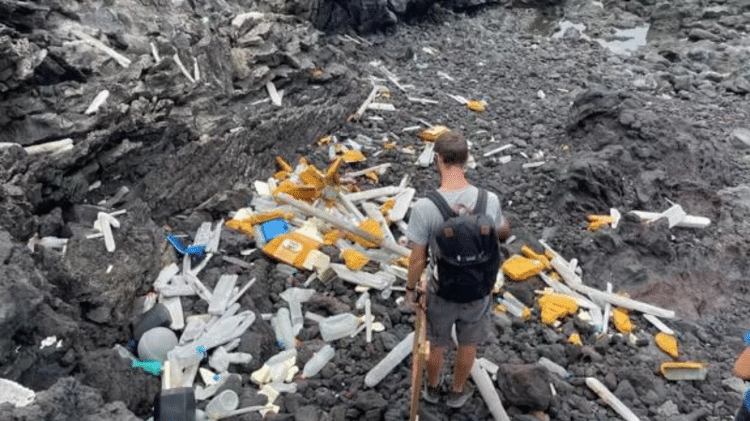According to environmentalists and researchers, thousands of pieces of plastic from around the world are littering the coastline of a remote South Atlantic island.
Activists say garbage found on the southwest coast of Ascension Island comes from countries like China, Japan and South Africa.
The team of London Zoological Society (ZSL) researchers and activists spent five weeks assessing the extent of pollution in the area.
More than 900 marine species are threatened by pollution.
Ascension Island has a wide variety of native species and they are affected by plastic pollution. This applies to land crab, frigate bird and several shark, turtle, fish and bird species.
The remote island, which belongs to the United Kingdom, has been the target of many biodiversity conservation projects.
“Too much plastic is abused. It’s heartbreaking,” ZSL marine biologist Fiona Llewellyn tells the BBC. Big businesses and governments need to take responsibility for the pollution they cause, she says.
Llewellyn and his team found more than 7,000 pieces of plastic during their expedition.
The tiny island of only 800 inhabitants is worried about pollution. Only a small amount of plastic on the coastline comes from the island itself. “It’s easy to see that most of them came from elsewhere,” says Llewellyn.
Animals ingest plastic and can become entangled in it, causing damage. There are growing concerns about microplastics entering the food chain.
The most common types of plastic on the island are bottles, broken pieces of hard plastic, fishing equipment and cigarette butts.
Most of the garbage ends up on cliffs that are difficult to reach and dangerous. “It was really difficult to get to this shoreline and go down the rocks to count all the plastic that was there,” he says.
ZSL’s conservation team is working with the Ascension Island government, the St Helena National Trust, the St Helena government, the University of Exeter and the University of South Africa Nelson Mandela to combat plastic pollution.
The total project will take three years and will consist of monitoring water currents and movement, identifying plastic bottles, evaluating expiration and manufacturing dates, and understanding when and where they may have entered the water.
– This text was published at https://www.bbc.com/portuguese/internacional-63659503.
source: Noticias
Mark Jones is a world traveler and journalist for News Rebeat. With a curious mind and a love of adventure, Mark brings a unique perspective to the latest global events and provides in-depth and thought-provoking coverage of the world at large.

